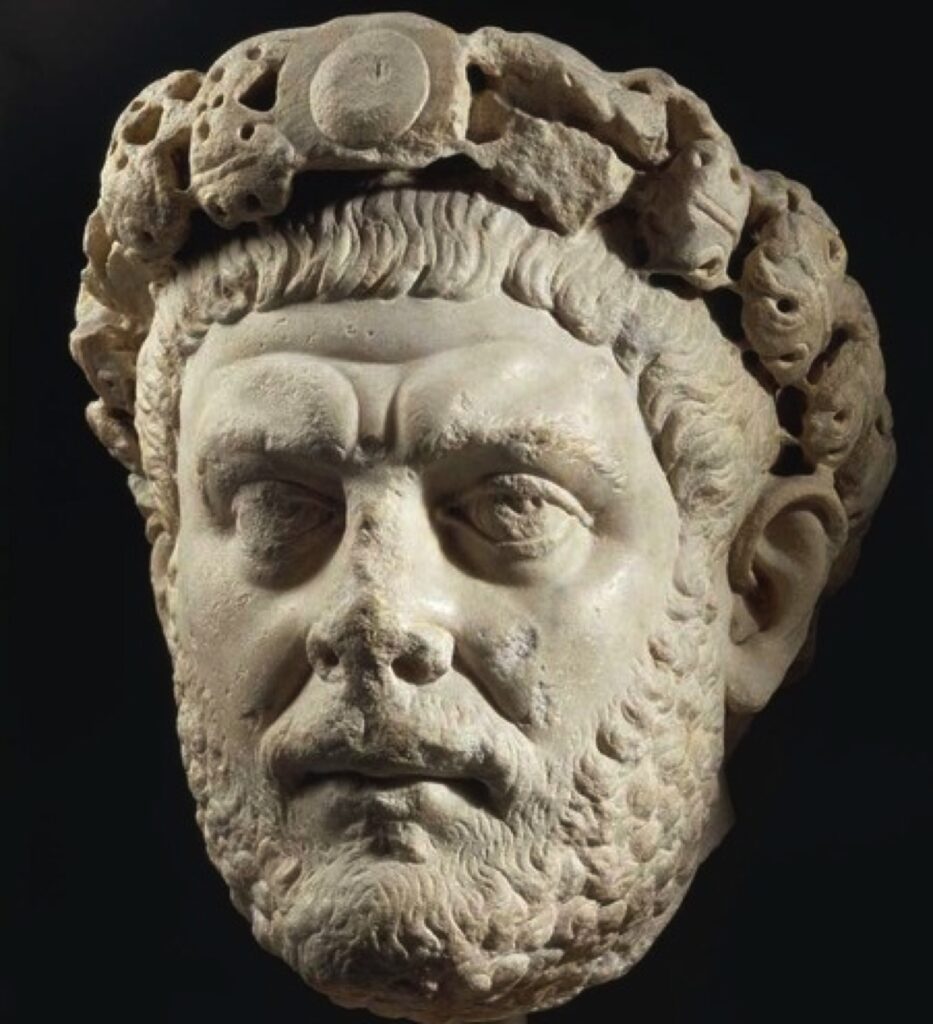 Gaius Aurelius Valerius Diocletianus was born in 244 AD, in the Roman province of Dalmatia, into a family of humble origins. He began his military career as a young man, moving rapidly up the ranks, until he was appointed commander of the cavalry, and later general, during the period of Emperor Marcus Aurelius Carus.
Gaius Aurelius Valerius Diocletianus was born in 244 AD, in the Roman province of Dalmatia, into a family of humble origins. He began his military career as a young man, moving rapidly up the ranks, until he was appointed commander of the cavalry, and later general, during the period of Emperor Marcus Aurelius Carus.
After the death of the Emperor’s two sons during war campaigns in the East, the Roman legions in 285 AD acclaimed Diocles as Emperor, as was the custom at that time, when the army decided who to appoint.
Diocles changed his name to Diocletian and assumed the title of Imperator, as Gaius Aurelius Valerius Diocletianus Iovius, because he was placed under the protection of Jupiter Maximus.
To give political stability to the empire, in 286 AD, Diocletian first established a Diarchy, calling his comrade-in-arms Maximian to his side, for the government of the western provinces, keeping for himself the Eastern Empire and the imperial primacy of primus inter pares. Later, to control the territory more effectively, he constituted the Tetrarchy, with a system composed of two Augustus and two Caesar, dividing the Empire into 12 administrative Dioceses, composed of 101 Provinces.
Under Diocletian’s empire, with the Edict of 303 AD a violent persecution began against the Christians, who were considered enemies of the Empire.
In 305, because of his state of health, Diocletian decided to abdicate and step down from the title of Imperator, as did Maximian, both abdicating in favour of the two Caesar.
Diocletian retired to his native Dalmatia, to his palace in Split, where he died in 313 AD.